
International Conference in Economics, Business, Humaniora and Applied Science

INTERNATIONAL CONFERENCE III 27 to 29 May 2026 Le Havre, Normandie, France
DESCRIPTION : Principles of Economics and Business: Theoretical and Applied Approaches Uplifting existing conditions to upper level: Micro, Macro and Development Economic scheme within International Context.
RESEARCH GAP ISSUES
The interaction between economics, business, social science, education, and foresight within interdisciplinary studies offers a rich needlepoint for exploring and enhancing sustainable development. At its core, this integration seeks to leverage insights from multiple disciplines to understand better and predict future trends, thereby enabling more informed decision-making today. This approach is particularly relevant in sustainable development, where the need to balance economic growth with environmental preservation and social equity is dominant.
Series of International Conferences [ICEBHAS III - 2026]
THEME: Sustainable Development: Through Social Economics and Environmental Studies
Event RSVP - ICEBHAS III 27 to 29 May 2026 - Le Havre, Normandie, France
International Conference in Economics, Business, Humaniora and Applied Science
INTERNATIONAL CONFERENCE – ICEBHAS III, 27 to 29 May 2026 Le Havre, Normandie, France
THEME: Sustainable Development: Through Social Economics and Environmental Studies
Principles of Economics and Business: Theoretical and Applied Approaches. Elevating existing conditions to the upper level, encompassing Micro, Macro, and Development Economic schemes within the International Context.
RESEARCH GAP ISSUES
The interaction between economics, business, social science, education, and foresight within interdisciplinary studies offers a rich needlepoint for exploring and enhancing sustainable development. At its core, this integration seeks to leverage insights from multiple disciplines to understand better and predict future trends, thereby enabling more informed decision-making today. This approach is particularly relevant in sustainable development, where the need to balance economic growth with environmental preservation and social equity is dominant.
This general theme will be treated through several particular research questions spread across several tracks:
Thematic tracks
Track 1: Game Theory and Strategic Interaction in Economics
Chair: Sylvain Baumann, University of Le Havre, Normandy
Game theory provides a robust framework for analysing strategic interactions among rational agents in various economic contexts. From market competition and bargaining to auctions, public goods provision, and regulatory compliance, game-theoretic approaches illuminate how individual incentives shape collective outcomes.
This track welcomes contributions that use cooperative or non-cooperative game theory to address economic questions involving conflict, coordination, or negotiation. We encourage both theoretical and applied research.
Submissions may explore applications in industrial organisation, labour and contract theory, environmental economics, public policy, or any other domain where strategic reasoning plays a key role. We particularly welcome work that connects formal modelling with empirical insights or behavioural considerations.
Track 2: Spatial data analysis: methods and applications
Chair : Zouhair Ait Benhamou, University of Le Havre, Normandy
This session invites contributions that employ spatial econometric methods to explore economic or policy-related phenomena. The session seeks out submissions that make explicit use of spatial analysis — whether through spatial autocorrelation diagnostics, spatial regression models (SAR, SEM, SDM), spatial panel data techniques, or geographically weighted methods. The session is open to a broad range of applications, including but not limited to: local inequalities and spatial spillovers, real estate and housing markets, environmental and climate policy impacts, urban and rural labour market dynamics, innovation diffusion and industrial clustering, health, infrastructure, and public service access, and cliometrics analysis.
Both theoretical advancements and empirical applications are welcome. Submissions should clearly demonstrate the spatial structure of the data and the econometric strategy used to account for spatial dependence or heterogeneity.
Track 3: Uncertainty and Risk in Economics
Chair: Nicolas Himounet, University of Le Havre, Normandy
Uncertainty and risk are playing an increasingly important role in economic analysis and decision-making. In a global context marked by geopolitical tensions, climate change, financial volatility, and shifting policy environments, these factors profoundly influence economic activity, market behaviour, and public policy choices. Understanding how uncertainty affects investment, consumption, debt sustainability, and financial stability has become essential for building resilient economies.
This track welcomes contributions that examine the sources, impacts, and management of uncertainty and risk in economics. We are interested in theoretical, empirical, and applied research that sheds light on these dynamics.
Track 4: Natural Resources, Economic Development and the Carbon Constraint
Chair: Yassine Kirat, University of Le Havre, Normandy
The role of natural resources in economic development continues to generate intense academic and policy debate. While resource-rich countries often benefit from significant export revenues, their trajectories are frequently marked by macroeconomic volatility, institutional fragility, and limited structural transformation — a phenomenon widely referred to as the resource curse. More recently, the environmental implications of resource extraction have brought to light a complementary concept: the carbon curse, whereby reliance on fossil resource rents correlates with higher CO₂ emissions and delayed adoption of low-carbon technologies.
This track invites contributions that critically examine the complex relationship between natural resource endowments, economic performance, and environmental outcomes. Particular attention will be given to research exploring the mechanisms through which resource wealth can hinder or promote inclusive growth and environmental sustainability, especially in the context of the global energy transition and rising climate constraints. We welcome theoretical, empirical, and methodological papers addressing, but not limited to, the following themes: The macroeconomic and institutional determinants of the resource curse, The link between natural resource dependence and carbon-intensive development paths, Trade openness, fossil exports, and carbon leakage, Fiscal policy, debt dynamics, and revenue management in resource-rich countries, ….
Track 5: Green Finance Meets Web3: Promises, Pitfalls, and Policy Frontiers
Chair: Cyril Filezac de l’Etang, University of Le Havre, Normandy
The ecological transition demands massive reallocation of capital — but also new infrastructures to channel and track sustainable finance. Emerging digital financial technologies (from tokenised green bonds to regenerative finance protocols) promise to accelerate this shift.
Yet they also raise fundamental challenges: How can energy-intensive blockchain infrastructures align with climate goals?
This track welcomes papers and projects that interrogate the synergies and frictions between Web3 finance and ecological imperatives — from technical architectures to policy and governance frameworks. Contributions may explore, for example, the carbon footprint of financial protocols, environmental token standards, or critical perspectives on the “greenwashing” of digital finance.
Track 6: Strategic Materials: Economic, Political and Institutional Challenges of Their Governance
Chairs: Côme Lorgerie, University of Le Havre Normandy and Sandrine Lardic, University of Le Havre, Normandy
This track invites economists to engage with the pressing challenges surrounding energy security and access to strategic materials in the context of the ecological transition. It aims to analyze the economic consequences of the geographic concentration of extraction and refining of critical resources, as well as the vulnerabilities created by price volatility and pressure on supply chains.
Contributions may explore the role of economic policy instruments in efforts to strengthen strategic autonomy. Particular attention will be given to how material constraints are integrated into energy planning models, the redistributive effects of resource security policies, and shifts in global energy markets that may influence the economic value of these materials. The track also opens space for reflection on governance models capable of aligning industrial sovereignty, energy resilience, and economic efficiency.
Track 7: Rare Earths and Mineral Intensity: Exploring the Technological Futures of the Green Transition
Chairs: Sonia Bielewicz, University of Le Havre Normandy and Sandrine Lardic, University of Le Havre, Normandy
Rare earths are a strategic vector in the energy transition, due to their role in mineral-intensive technologies such as wind turbines and electric vehicles. The evolving demand for these critical elements calls for precise modeling that incorporates both industrial dynamics and technological innovations that could alter their trajectories.
In this s6ession, contributions will focus on the following issues: What role does innovation play in the dynamics of mineral demand models? What types of innovations are the subject of patent applications in the field of rare earths, particularly regarding recycling or substitution? Can geographic or sectoral trends be identified in intellectual property strategies related to these materials? How do patents influence mineral demand models, especially when they lock access to certain processing or extraction technologies? To what extent can patents accelerate or hinder the diffusion of sustainable solutions within industrial value chains?
Track 8: "Sustainable Food Systems »
Chairs: Sonia Aissaoui, Université Caen Normandie, Roland Condor, EM Normandie (English)
Food systems are undergoing major transformations to address environmental, social, and economic sustainability challenges. These adaptations affect all actors from producers adapting their farming practices, to processors, logistics providers, distributors, and consumers adopting more responsible behaviors. However, public directives, progress reports, and innovations vary from country to country depending on policy frameworks, technological innovation, and stakeholder involvement. The "Sustainable Food Systems" track aims to bring together researchers to discuss sustainable practices, the difficulties encountered in transforming food systems, explore emerging challenges, and share insight from diverse food systems. The objective is to encourage interdisciplinary dialogue and contribute to a better understanding of the transition toward more sustainable food systems.
Track 9: “Sustainable Urban and Rural Logistics: Planning and Experimenting for a Greener Future”
Chairs: Claire Capo, Aix-Marseille Université, Kanyarat Nimtrakool, Rajamangala University of Technology, Thanyaburi, Samuel Grandval, Université Le Havre Normandie (French).
This track invites researchers and practitioners to share their work on sustainable logistics across urban and rural contexts. We are looking for contributions that deliver real logistics management insights, optimize goods distribution, and offer strategic value within sustainability-focused frameworks.
We welcome research that supports sustainable development, boosts the attractiveness of territories, and engages with diverse territorial contexts. A strong emphasis will be placed on real-world experimentation and case studies, especially those reflecting a variety of territories and countries.
Track 10 : Low-tech in France: Emergence of a Network and Multiplicity of Actors
Chairs: Nicolas Praquin, Université Rouen Normandie, Olivier Desplebin, Université Rouen Normandie. (French)
Low-tech has long been present in individual, community, artisanal, and micro-entrepreneurial practices. However, the profound transformation of our natural ecosystems and the increasing scarcity of fossil fuels have led to an awareness of the finite nature of our resources, gradually leading to a form of institutionalization of these practices through multiple actors and the emergence of low-tech networks. This workshop aims to understand how this institutionalization occurred, who the actors were, what the barriers and levers to its diffusion are, and what prospects low-tech offers in terms of socio-ecological transition, employment, territorial revitalization, the development of new skills, and, more broadly, social reorganization.
Track 11: Low-tech networks around the world: convergences and divergences of practices
Chairs: Nicolas Praquin, Université Rouen Normandie, Olivier Desplebin, Université Rouen Normandie. (English)
Faced with ecosystem challenges and the increasing scarcity of fossil fuels, low-tech has begun to move beyond the confines of invisible individual or collective practices to take a place in institutional networks with the support of public policy stakeholders. This session aims to take stock of low-tech institutionalization practices around the world through the sharing of networking experiences, engaged discussions, and successful and failed attempts. This session is primarily open to stakeholders able to provide proposals with a meso-, macro-organizational, or territorial approach.
Track 12: SDGs & Women’s Entrepreneurship
Chairs: Pascale Bueno Merino, De Vinci Higher Education, Marie-Hélène Duchemin, Université de Caen Normandie. (English)
The aim of this workshop is to analyze the role and the impacts of the Sustainable Development Goals (SDGs) on women's entrepreneurship. More specifically, it will assess the extent to which the SDG Agenda (quality education, gender equality, affordable and clean energy, industry, innovation and infrastructure, good health and well-being, etc.) contributes to the growth and sustainability of women's entrepreneurial activity, as well as to the stimulation of public or private policies to support this activity.
Track 13 : Reindustrialization and Managerial Dynamics: Issues, Practices and Perspectives
Chairs: Marie-Laure Baron, Université Le Havre Normandie, Sonia Frouffe, Université Le Havre Normandie, Nathan Gouin, Université Le Havre Normandie (English-French).
This session aims to improve the understanding of the conditions that enable successful reindustrialization dynamics, a goal actively pursued by Western governments. Proposals may address organizational forms and governance models supporting industrial revival; impacts on work, skills, and human resource management; the role of innovation management in ecological and digital transitions; as well as interactions between firms, territories, and public actors, and more….
Scientific Committee
Aissaoui Sonia, Université Caen Normandie
Ait Benhamou Zouhair, Université Le Havre Normandie
Aminata Jaka, Universitas Diponegoro, Indonesia.
Agustin, Esther Sri AS, Universitas Diponegoro, Indonesia.
Baron Marie-Laure, Université Le Havre Normandie,
Baumann Sylvain, Université Le Havre Normandie, France.
Baumann-Pauly Dorothée, University of Genève, (UNIGE), Switzerland.
Bielewicz Sonia, Université Le Havre Normandie
Bueno Merino Pascale, De Vinci Higher Education,
Capo Claire, Aix-Marseille Université
Chi Jerry, Andrew University, USA.
Chih-Yun Wu, Tunghai University, Taiwan.
Chou Ying-Chyi, Dep. of Business Administration, Tunghai University, Taiwan
Condor Roland, EM Normandie
Desplebin Olivier, Université Rouen Normandie.
Duchemin Marie-Hélène, Université de Caen Normandie.
Filezac de l’Etang Cyril, Université Le Havre Normandie
Frouffe Sonia, Université Le Havre Normandie,
Gil Tovar Hernando, Universidad Surcolombiana, Neiva, Colombia.
Gouin Nathan, Université Le Havre Normandie
Grandval Samuel, Université Le Havre Normandie, France.
Himounet Nicolas, Université Le Havre Normandie
Hirayama Yuta, Osaka Metropolitan University Japan.
Kirat Yassine, Université Le Havre Normandie
Lardic Sandrine, Université Le Havre Normandie
LeClair Dan, Global Business School Network, GBSN, New York, USA.
Lorgerie Côme, Université Le Havre Normandie
Morris Nick, La Trobe University, Australia.
Nimtrakool Kanyarat, Rajamangala University of Technology, Thanyaburi,
Praquin Nicolas, Université Rouen Normandie
Srivibha Vasu, Sasin University, Thailand.
Veuger Jan, Saxion University, Netherlands.
IMPORTANT DATES
► Deadline for submission of paper/extended abstract* : (4 000 words without bibliography) by Monday 16th February 2026
* Abstracts should present the problematization and interest of the research, the theoretical framework, the methodology, the expected results, and the potential contributions.
► Notification of acceptance/rejection: By Monday, 30th March 2026
► Deadline for early-bird registration: By Monday, 2nd March 2026
► Deadline for registration: By Monday, 4th May 2026
► Deadline for sending the final version of papers: By Monday, 11th May 2026
SUBMISSION GUIDELINES
OFFICIAL LANGUAGE: English / French
(1) Submit full paper/abstract via submissions@ccsis.info
(2) Full papers/abstracts received by the deadline will be (double-blind) peer-reviewed by an internal panel on a rolling basis.
(3) For co-authored papers/abstracts (with more than one author), the submitting author will serve as the corresponding author who has the responsibility to forward all correspondence to his/her co-authors (e.g., acceptance/rejection emails).
PAPERS ATTENDED
Academic papers, communications with managerial implications, and case studies.
Contributions from the world of professional practice are also welcome. These contributions can take the form of testimonials, shared experiences, or any other original format. Mixed contributions from researchers and practitioners are strongly encouraged.
PUBLICATION
Best full papers accepted for the conference could be included in :
International Journal of Complex Systems, Development, and Economic Studies
https://journal-ccsis.org/index.php/ijcs-des
Or
The International Journal of Complex Systems Management and Interdisciplinary Studies
https://journal-ccsis.org/index.php/ijcs-mis
Upon submitting to the conference for presentation, the authors will be invited to choose a journal as a possible publication outlet. After the conference, selected papers will be invited for further review and publication at the above journals. Final acceptance is subject to further editorial review. There is NO extra publication fee.
Administration Procedure, Conference 27 to 29 May 2026 in Le Havre, Normandie, France
All attendees must register in advance to participate in conference activities. Each registration enables the publication or presentation of only one paper and the participation of only one person.
Complete Registration Includes Admission to Keynotes and plenaries, Technical Sessions, Coffee Breaks, and a gift.

Supporting System:
Association of APSEPI-Indonesia.
Chulalongkorn University, Thailand.
Osaka Metropolitan University, Japan.
Universitas Diponegoro [UNDIP]
University of Le Havre, France.
Sasin University, Thailand.
Thammasat University, Thailand.
The PRME community is the most significant organised relationship between the United Nations and related higher education institutions.
The field of Research is focused on:
Education
Social Science & Humaniora
Communication
Energy Economics
Regional Economics
Public Economics
Industrial Economics
Monetary Economics
Natural Resources and Environmental Economics
Management Science
Finance
International Business
Applied Science
Islamic Economics
Applied International - national managerial Theory/Spectrum
Applied Decision-making Theory.
Sample topic covered:
Humaniora and Current Issues in Social Science [Communication Technology]
COVID-19 Pandemic Recovery: While vaccination efforts have been underway, the pandemic's economic effects persist. Issues include supply chain disruptions, labour shortages, shifting consumer behaviour, and monetary stimulus measures.
Energy Economics: Energy policy can cover many topics, including energy efficiency, renewable energy, fossil fuel development, electricity market, (type of market) transportation systems, and international energy trade.
Inflation: Many countries have experienced higher inflation rates due to supply chain disruptions, increased demand post-lockdowns, and monetary policies aimed at stimulating economies. Central banks are closely monitoring this situation and considering appropriate policy responses.
Climate Change and Sustainability: Climate change poses risks to businesses and economies, leading to discussions on sustainable practices, carbon pricing, renewable energy investments, and adaptation strategies.
Digital Transformation: The acceleration of digitalisation due to the pandemic continues, impacting various industries. Businesses are adapting to remote work, e-commerce growth, digital payments, and cybersecurity challenges.
Global Trade and Geopolitical Tensions: Trade tensions between major economies, such as the U.S. and China, and geopolitical conflicts affect global supply chains, trade policies, and investment decisions.
Income Inequality: The pandemic has exacerbated existing inequalities, leading to discussions on fair wages, wealth distribution, social safety nets, and policies to address disparities.
Technological Disruption: Emerging technologies like artificial intelligence, automation, blockchain, and 5G are transforming industries, raising questions about job displacement, regulation, and ethical considerations.
Remote Work and Hybrid Work Models: The pandemic normalised remote work, prompting businesses to reassess traditional office setups and adopt hybrid models. This shift has implications for productivity, employee well-being, and organisational culture.
Fluid Worker and Fluid Job Paradigm Based on Technological Change
Financial Market Volatility: Market volatility persists due to uncertainties surrounding the pandemic, inflation, monetary policy decisions, and geopolitical developments. Investors are closely monitoring these factors and adjusting their portfolios accordingly.
Supply Chain Resilience: The pandemic exposed vulnerabilities in global supply chains, leading to discussions on reshoring, diversification, just-in-case inventory strategies, and technology-enabled supply chain management.
Current issues in Islamic Economics include Islamic Public Economy, Halal Economics and Industry, and Sharia Finance and Banking.
Administration Procedure, Conference 27 to 29 May 2026 in Le Havre, Normandie, France
All attendees must register in advance to participate in conference activities. Each registration enables the publication or presentation of only one paper and the participation of only one person.
Complete Registration Includes Admission to Keynotes and plenaries, Technical Sessions, Coffee Breaks, and a gift.
Registration Note:
1. Paper Length Limitation: The paper must be 12 pages long. If it exceeds 12 pages, additional pages will be permitted at the cost of $50 per additional page (a maximum of 20 pages is acceptable).
2. Additional Paper: Each paid registration covers only one paper; you can pay an Additional Paper Fee (100 USD) for one more paper from the same first author who already has a paid registration.)
Cancellation Policy
All refund/cancellation requests must be emailed to cp@ccsis.info and cs@ccsis.info, Cc. to ccsiscs17@gmail.com and received by 30 March 2026. No refund will be provided after this date.
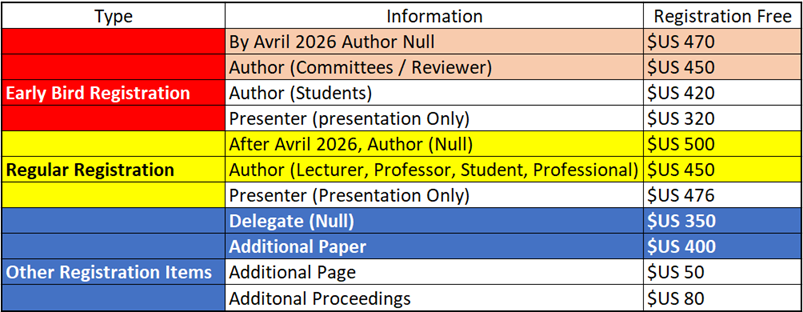


Gallery
Provide a short description of the gallery, highlighting key things.
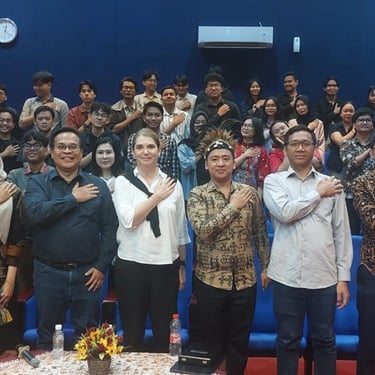
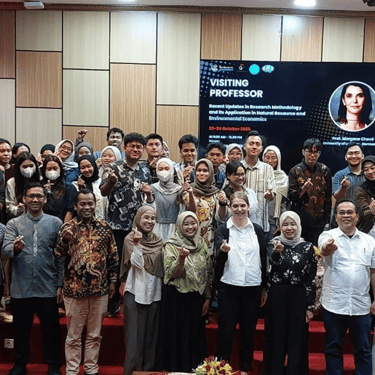
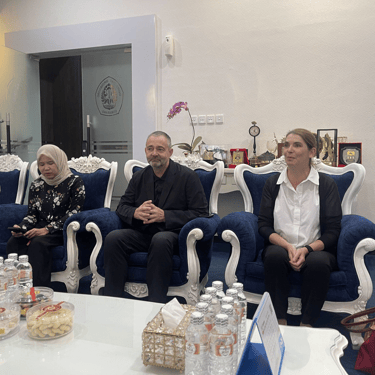
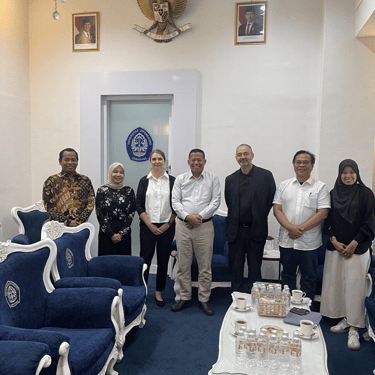
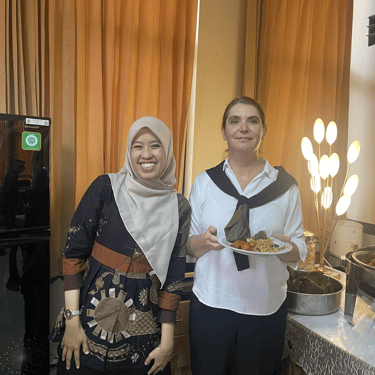
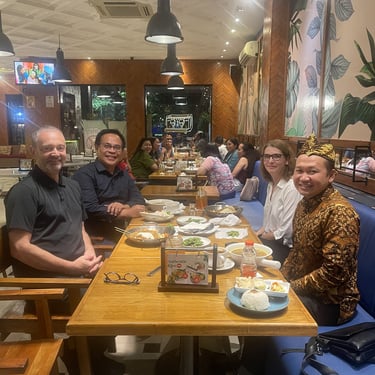
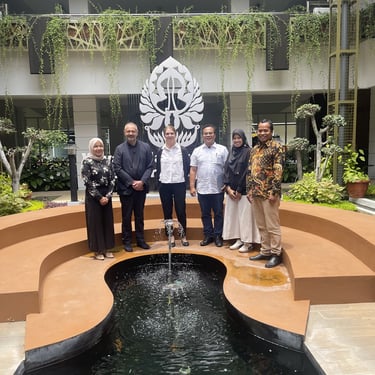
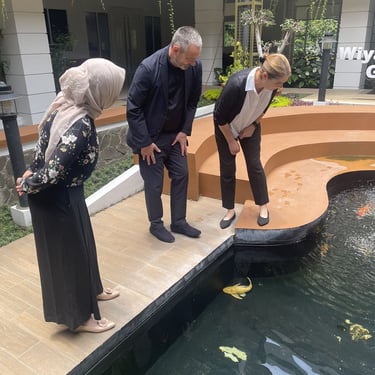
Prelimenary Meeting in Indonesia 23th-24th OCtober 2025
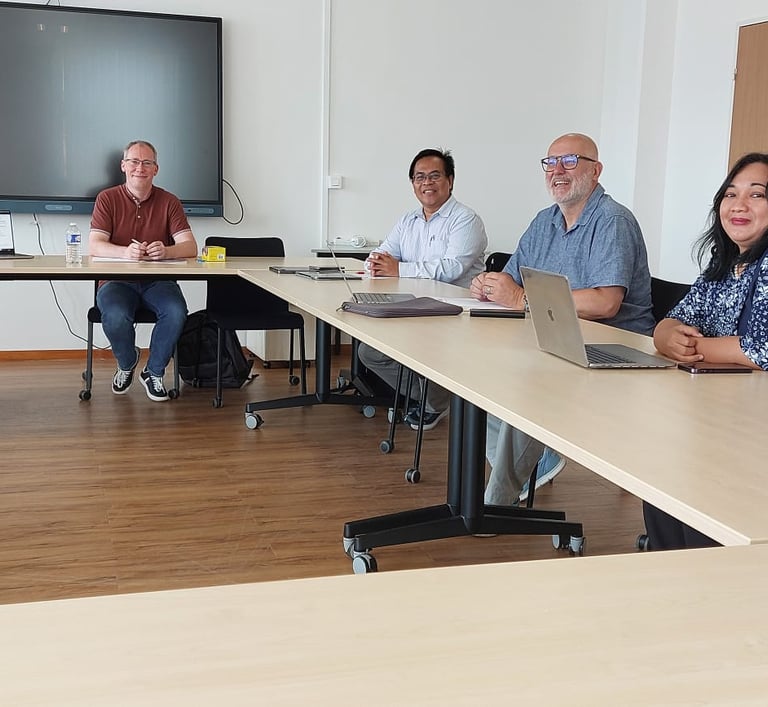

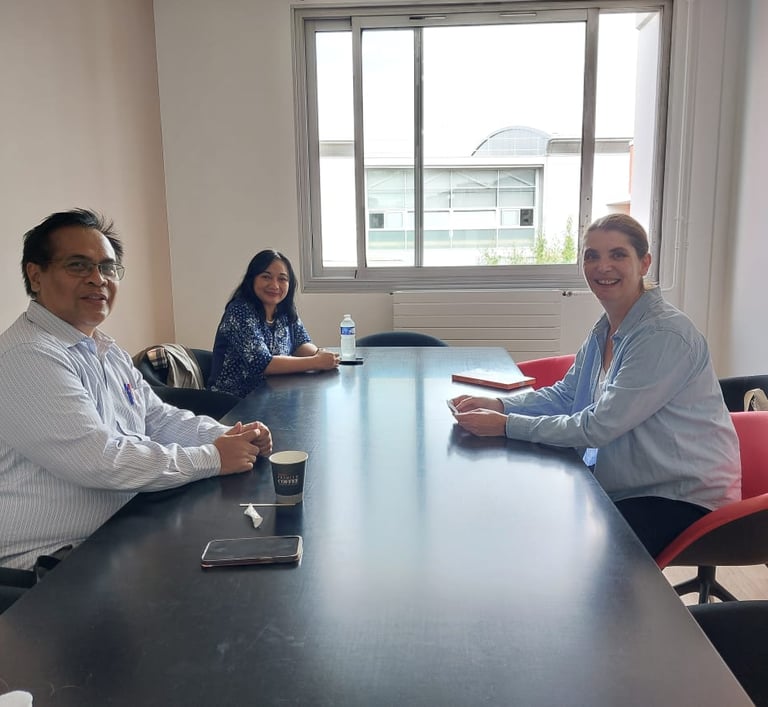

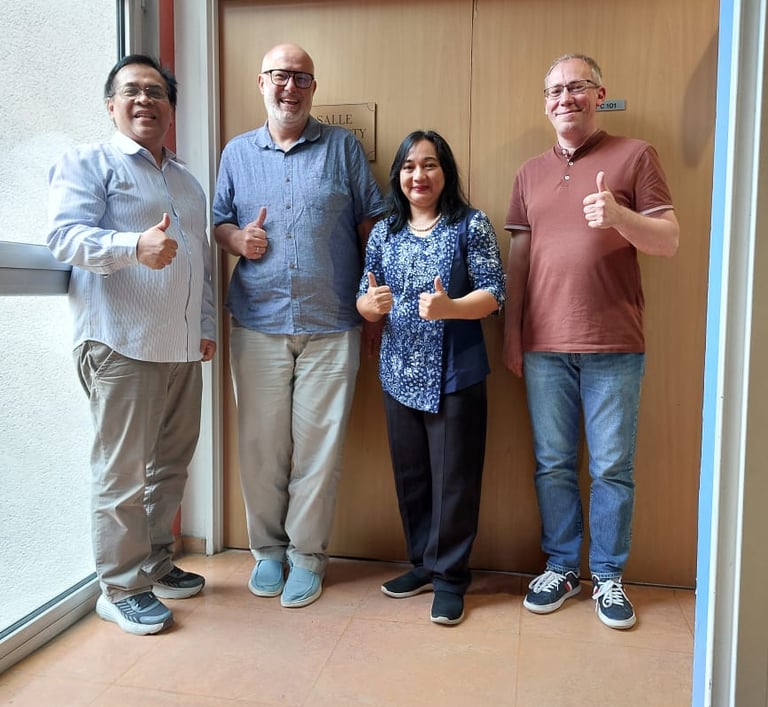

Prelimenary Meeting in France 24 June 2025
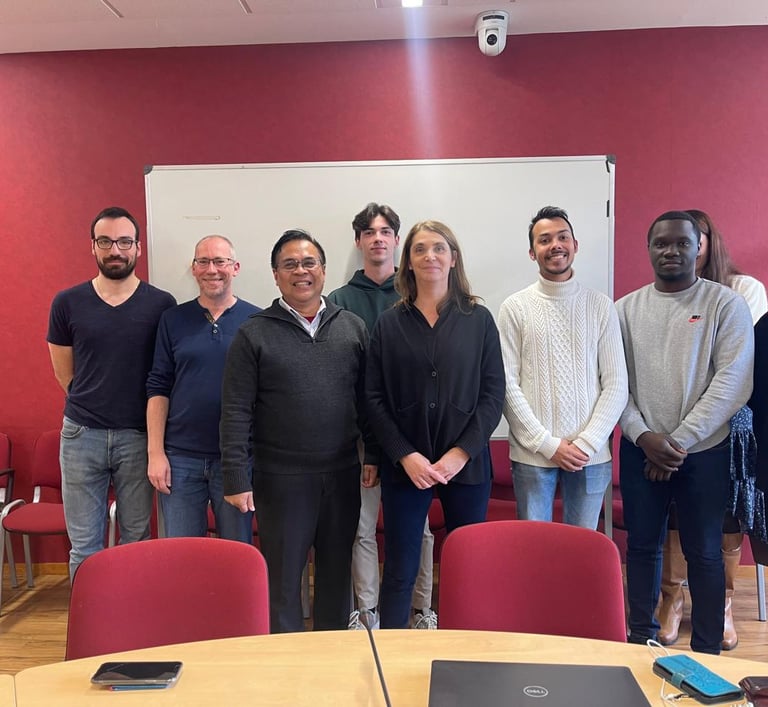

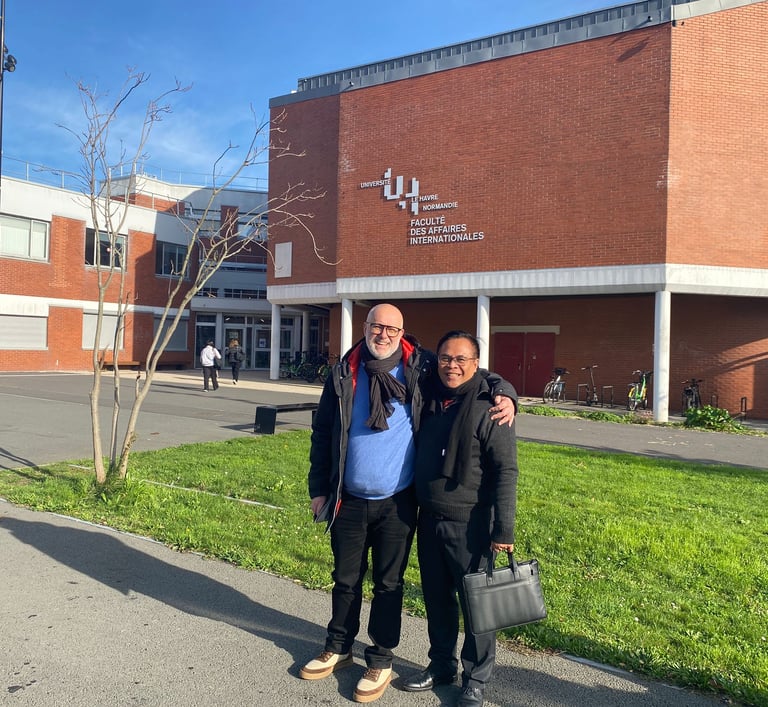

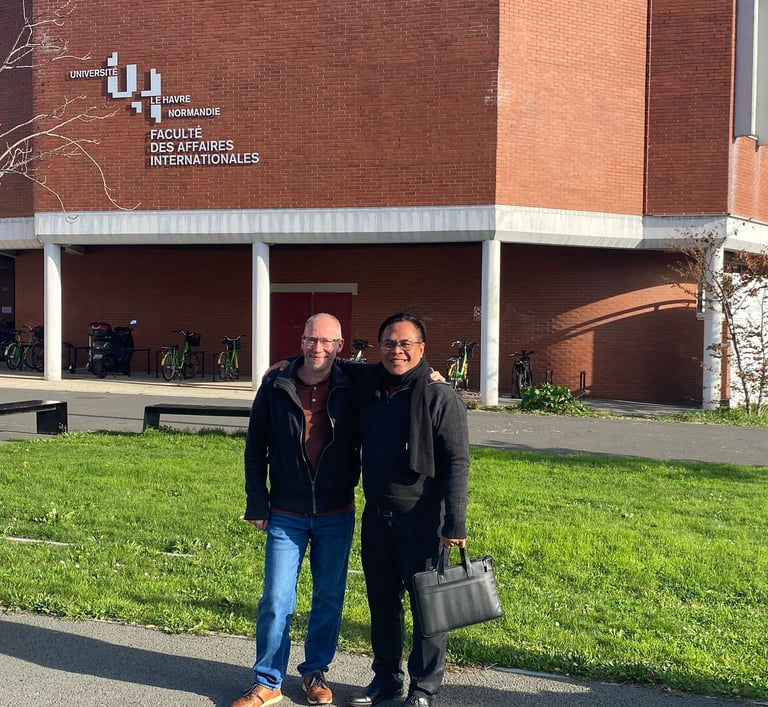

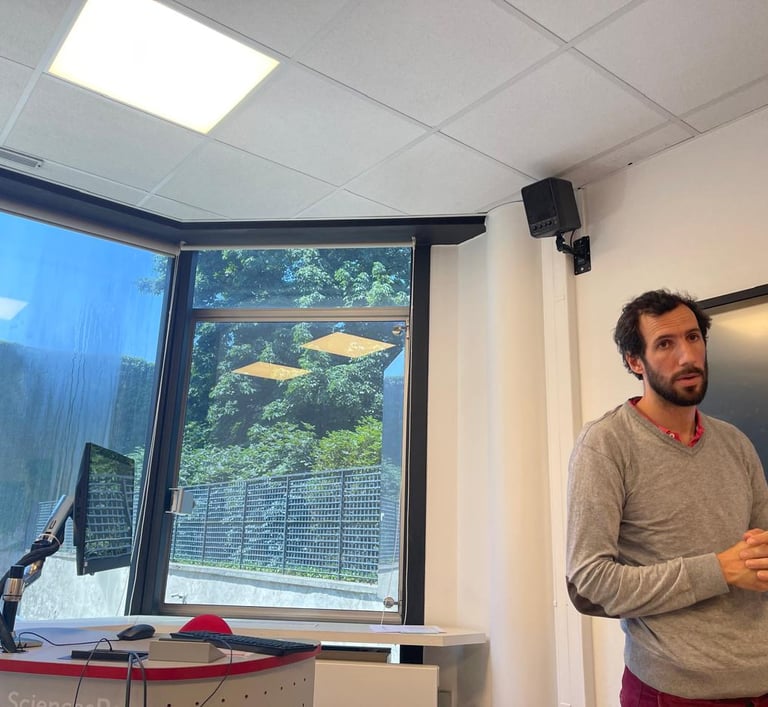

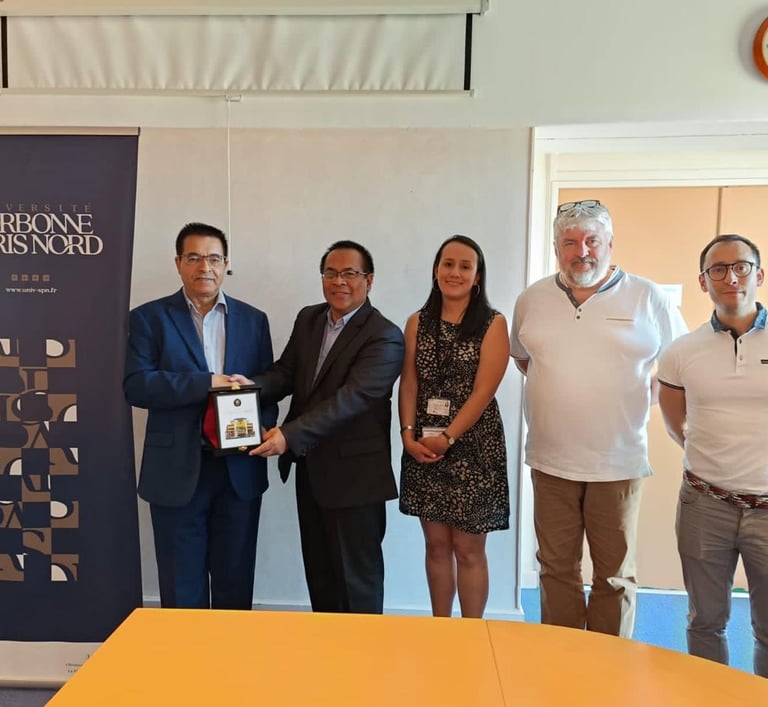

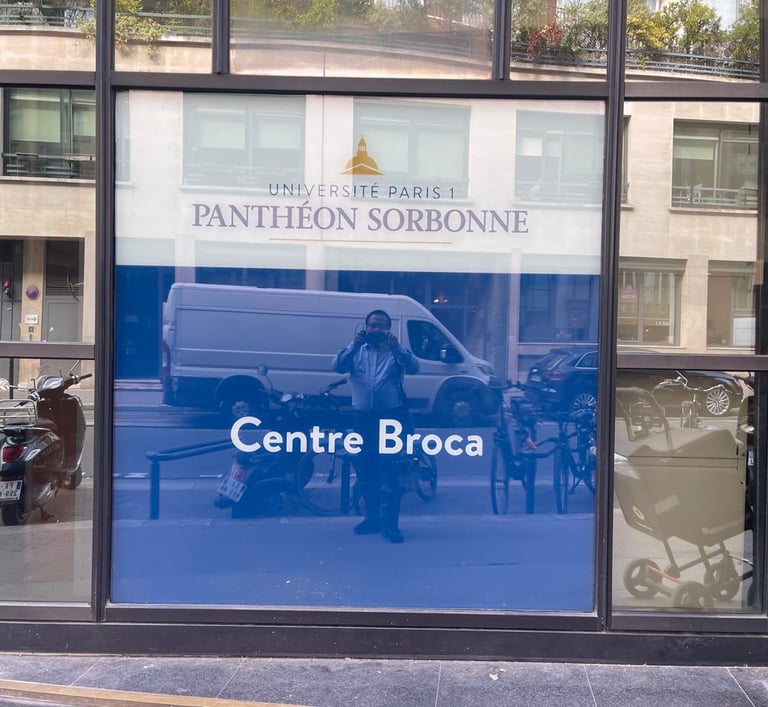

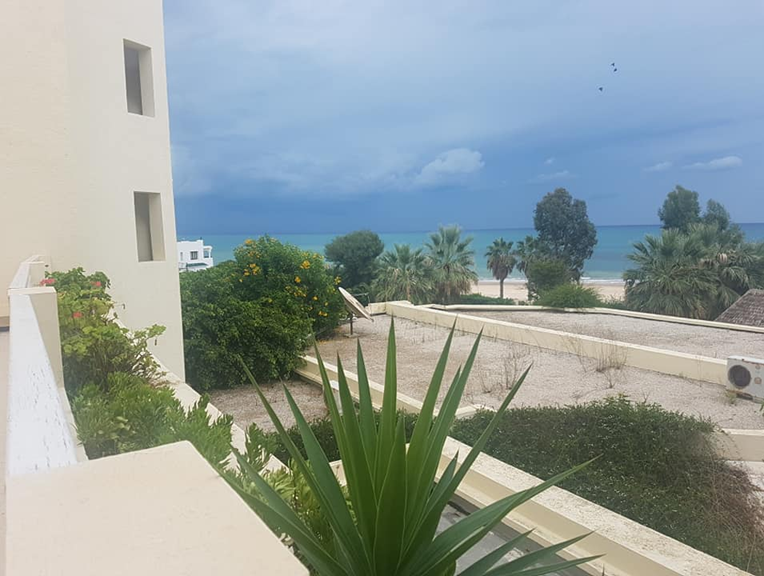

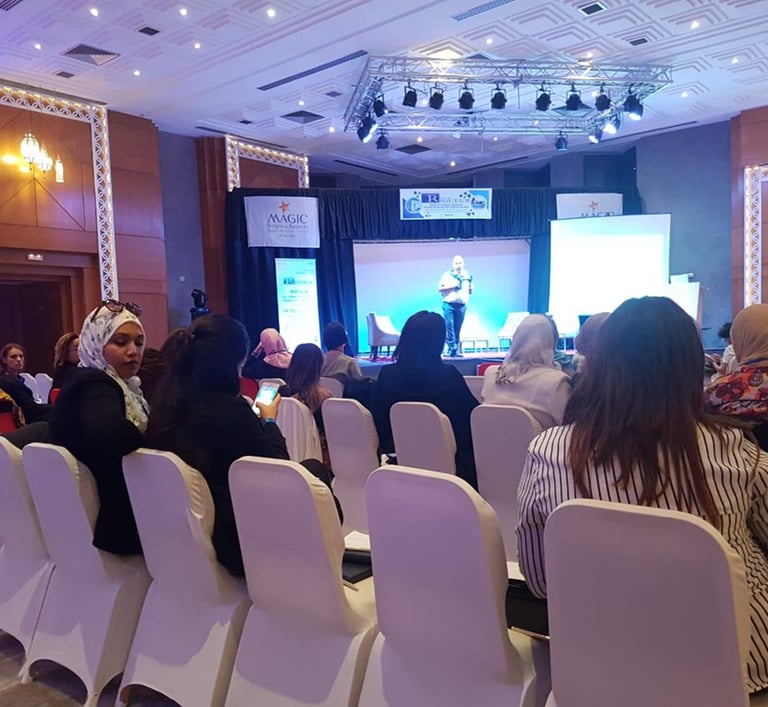

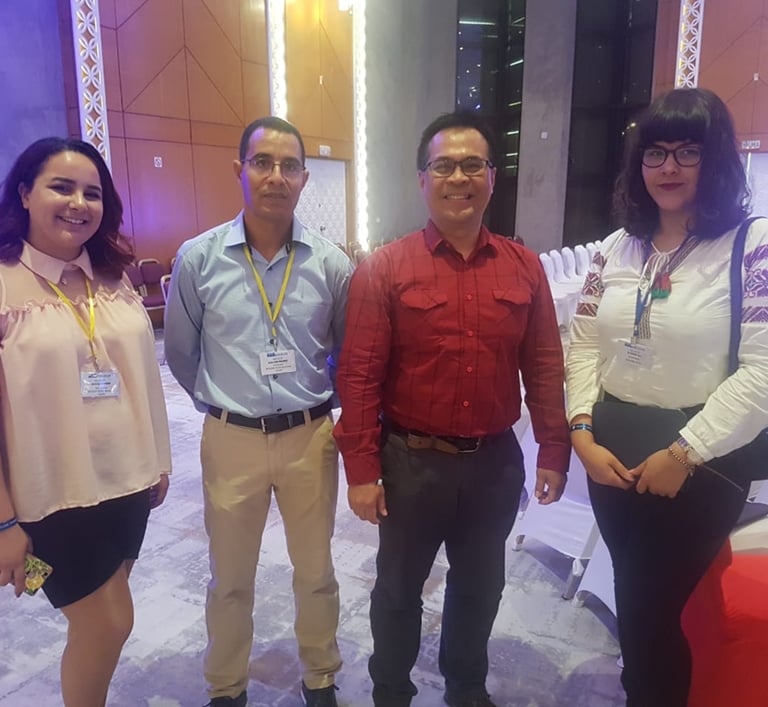

Prelimenary Meeting In Tunise 2018
Get in touch


Returns & Refunds policy
You are entitled to cancel your register within 30 days without giving any reason for doing so.
The deadline for cancelling a register is 30 days from the date you received the confirmation or on which a third party you have appointed, who is not the charge person, takes possession of the product delivered.
To exercise your right to cancel, please let us know of your decision using a clear statement.
You can inform us of your decision by e-mailing cs@ccsis.info
We will reimburse you within 30 days of receiving the returned payment. We will use the same means of payment as you used for the order, and you will not incur any fees for such reimbursement.
Contact Us
If you have any questions about our Returns and Refunds Policy, please contact us by e-mail cs@ccsis.info
Get in touch
Socials
Subscribe to our newsletter
Copyright ©2024-2025 by Society of Complex Systems and Interdisciplinary Studies ║ International virtual Office: érables 94470, Boissy St Leger, France. Bank Address: Avenue Louise 54, Brussels, 1050, Belgium.
